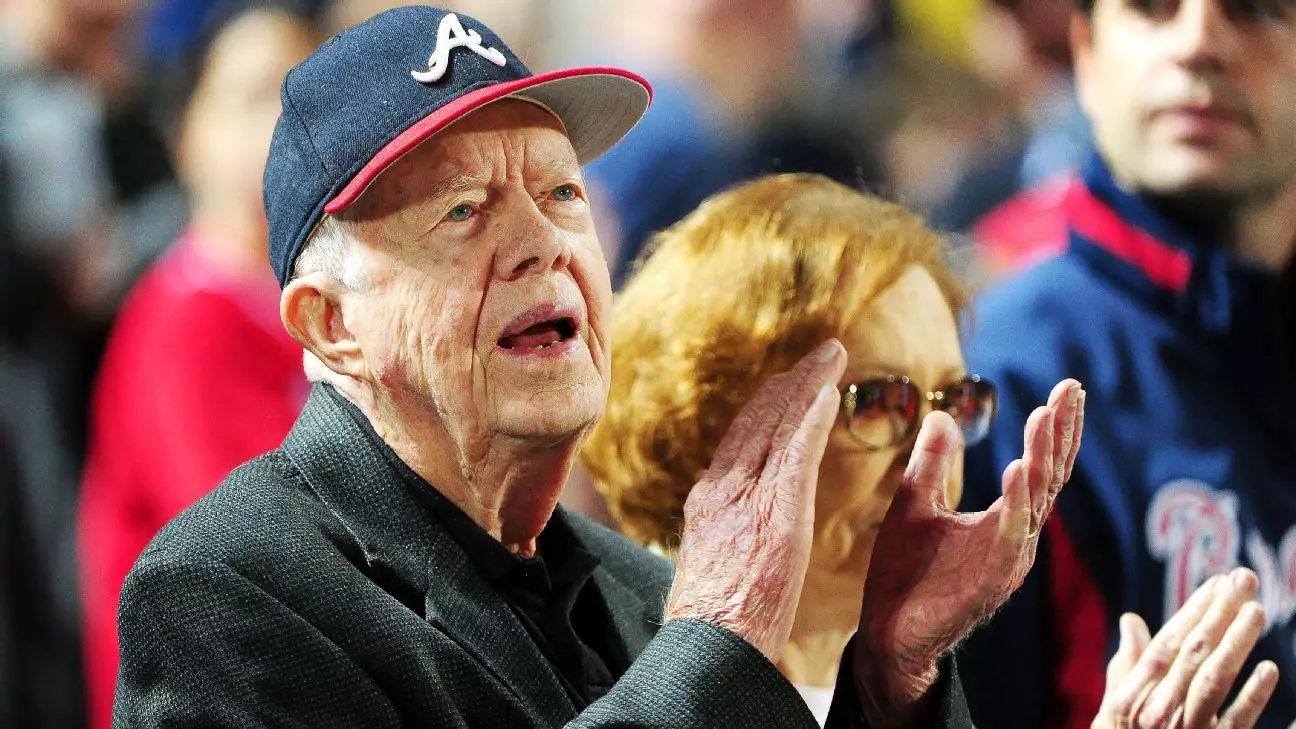In a poignant moment for the nation, former President Jimmy Carter passed away at the age of 100. His family confirmed that he left this world peacefully in his beloved home in Plains, Georgia. As the longest-living president in U.S. history, Carter’s centenarian status was a testament to his enduring spirit. He was not just a figure of American politics; he represented an era marked by both resilience and controversy. As we reflect on his life, it is crucial to explore the complexities, achievements, and challenges that defined his presidency and beyond.
Carter assumed the presidency in January 1977, bringing with him a pragmatic approach rooted in his Southern upbringing. His administration, which lasted until early 1981, marked several notable firsts. Among these was his recognition of the importance of sports in fostering unity when he welcomed the Pittsburgh Steelers, the Super Bowl champions of 1980, to the White House. This act may seem trivial by modern standards, yet it underscored his goal of bridging divides and celebrating national achievements.
Decisions made during his presidency, however, were more than symbolic. One of the most significant events was the 1980 Olympic boycott. Prompted by the Soviet invasion of Afghanistan, Carter’s choice to sidestep the games ignited intense debates about ethics versus sportsmanship. Over 60 nations joined the U.S. in the boycott, not only making a powerful political statement but also impacting the athletes who trained for years without the chance to compete. In his memoirs, Carter expressed regret about the decision, highlighting the personal and collective consequences faced by American Olympians. He recognized that sometimes the weight of leadership requires choices that may not resonate positively with all.
Following his presidency, Jimmy Carter became a beacon of humanitarianism. He founded The Carter Center in 1982, focusing efforts on public policy, democracy, human rights, disease prevention, and conflict resolution. This organization became synonymous with Carter’s enduring commitment to making a difference globally. His humanitarian efforts were recognized in 2002 when he was awarded the Nobel Peace Prize, affirming his role as a global advocate for peace.
Carter’s partnership with Habitat for Humanity further illustrated his dedication to service. For more than three decades, he embodied the spirit of giving back, hammering nails alongside volunteers to construct affordable housing for the needy. This commitment to community service was a cornerstone of his legacy, contrasting sharply with the contentious political landscape in which he initially served as president.
Carter’s life was marked not only by political achievements but also by personal joys and a deep love for family. He married Rosalynn Smith in 1946, and together they formed a notable partnership that lasted until her passing in late 2023. Their strong bond, often displayed in public, emphasized the importance of family values in Carter’s life. Whether attending Atlanta Braves games or working on home improvement projects, the Carters showcased a sense of normalcy that resonated with many Americans.
Despite the diagnosis of cancer in 2015, Carter remained resilient, displaying an inspiring will to live fully in his later years. Entering hospice care in early 2023, the decision was profound; it represented not only his battle with illness but also his desire to remain surrounded by loved ones during life’s final chapter.
As we mourn the loss of Jimmy Carter, it is essential to remember the multifaceted nature of his life and legacy. He was a complex figure who grappled with personal choices and national dilemmas, yet consistently aimed for a path of service and compassion. His contributions to global peace, social justice, and community development have left an indelible mark on American society.
Moreover, Carter’s ability to forge connections beyond politics highlighted the importance of empathy in leadership. His narrative is a reminder that while presidential terms may end, the impact of one’s actions extends far beyond the time spent in office. Individuals like President Carter inspire us to pursue meaningful change, underscoring the belief that with humility and dedication, every citizen can create ripples of difference in their own communities. As we reflect on his remarkable journey, we are invited to carry forward his legacy of kindness, resilience, and unwavering dedication to humanity.


Leave a Reply